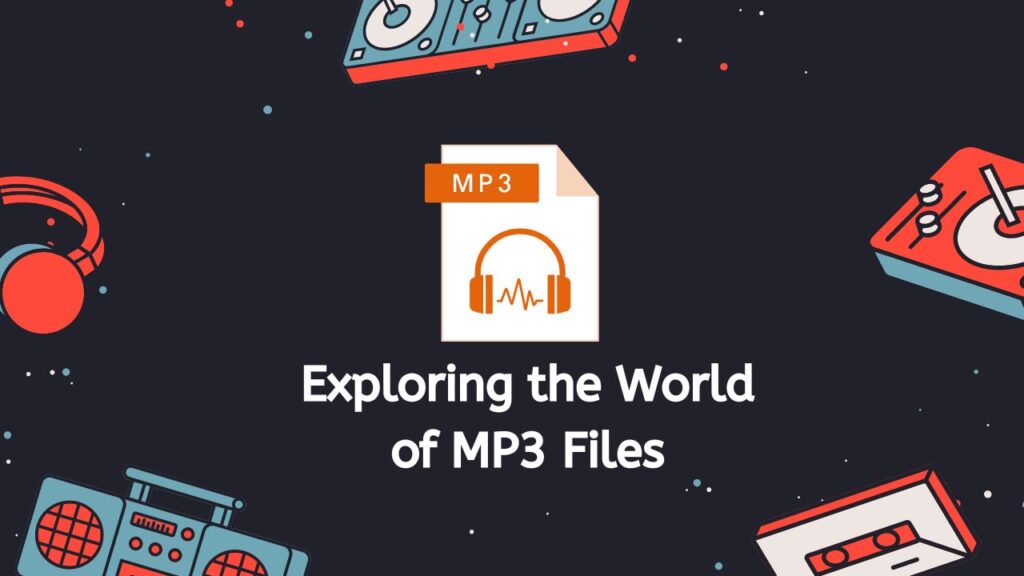Welcome to the world of MP3 files! MP3 files are audio files that use a specific type of compression to reduce their file size without significantly impacting the quality of the audio. This makes them an ideal format for storing and sharing music and other audio recordings.
What is an MP3 file and How does it Work?
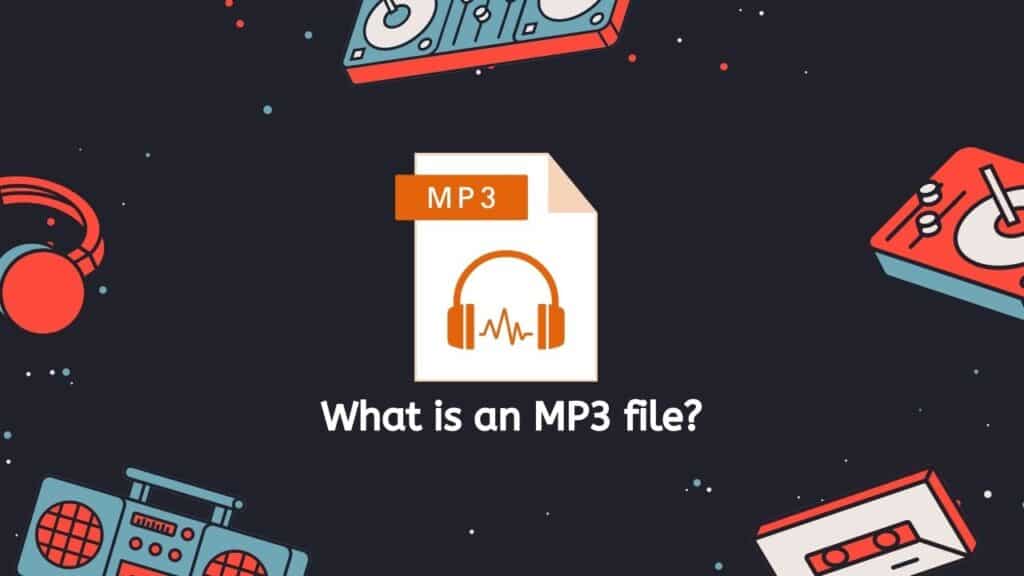
First, it’s important to understand that MP3 files are digital audio files, meaning that they are made up of a series of ones and zeros that represent the original audio recording. These digital audio files can be quite large, which is why MP3 files use a technique called “perceptual coding” to reduce their size.
Perceptual coding works by removing parts of the audio file that are difficult for the human ear to hear. This includes frequencies that are too high or too low, as well as sounds that are masked by other sounds in the recording. By removing this information, the MP3 file can be made much smaller without significantly impacting the overall quality of the audio.
Once the audio has been compressed using perceptual coding, it is then encoded using a special algorithm called the “MP3 algorithm.” This algorithm takes the compressed audio and encodes it into a format that can be easily transmitted and played back on a variety of devices.
Ways on How to Open an MP3 file
If you have an MP3 file that you want to open, there are several ways to do so, depending on the device you are using and the software you have installed.
One of the easiest ways to open an MP3 file is to use a media player. Most computers and devices come with a default media player, such as Windows Media Player on Windows computers and iTunes on Apple devices. These media players can be used to open and play MP3 files.
If you don’t have a default media player, or if you want to use a different one, there are many other options available. Some popular media players that can be used to open MP3 files include VLC Media Player, Winamp, and Foobar2000.
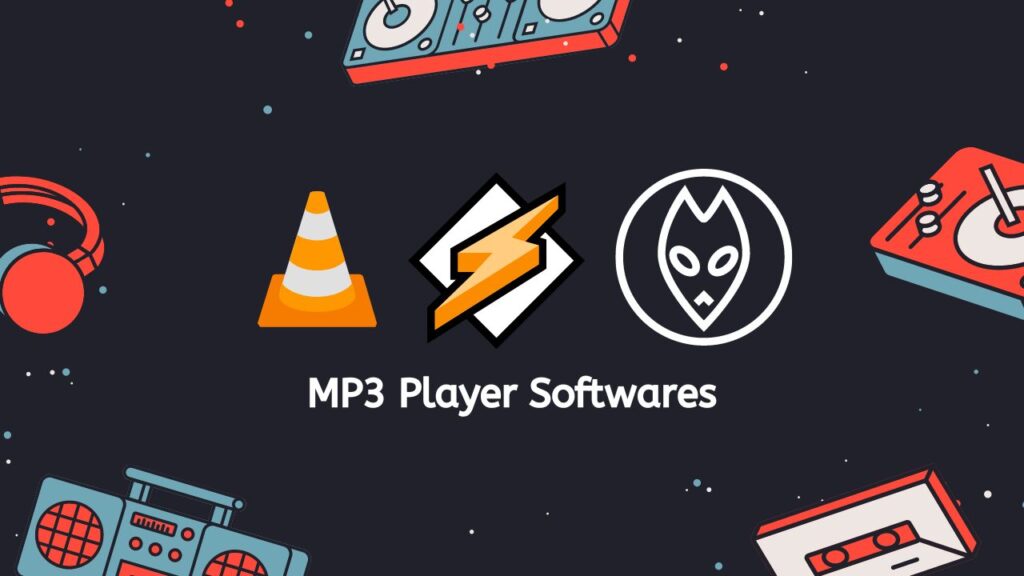
In addition to using a media player, you can also open an MP3 file using a media management program. These programs, such as iTunes and Windows Media Player, allow you to organize your music and other audio files, as well as play them.
Finally, if you want to open an MP3 file on your smartphone or other mobile device, you can use a music app or a media player app. Popular options include Apple Music, Google Play Music, and Spotify.
In summary, there are many ways to open an MP3 file, including using a media player, media management program, or music app. Choose the option that works best for you and your device.
The Invention of MP3
The MP3 (MPEG-1 Audio Layer 3) format was developed in the early 1990s by a team of researchers at the Fraunhofer Institute in Germany. The first version of the MP3 format was released in 1993, and it quickly became a popular format for storing and sharing audio files due to its high-quality sound and small file size.
The MP3 format was standardized by the International Organization for Standardization (ISO) in 1991 and has since become one of the most widely used audio formats in the world. It is supported by almost all modern media players and is used for a wide range of applications, including music and audio playback, online streaming, and digital audio storage.
The World’s First MP3 Player
The first MP3 player was the MPMan, which was released by the South Korean company SaeHan in March of 1998. The MPMan was a portable device that could play MP3 files and was one of the first commercially available MP3 players on the market.
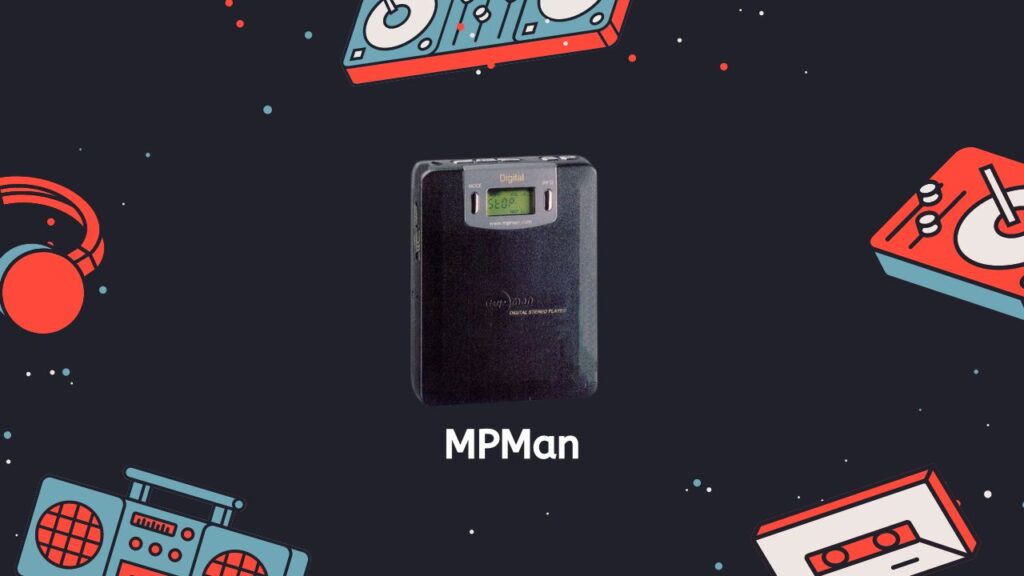
Prior to the MPMan, there were other digital audio players that could play MP3 files, but they were not specifically marketed as MP3 players. These included devices like the Rio PMP300, which was released by the American company Diamond Multimedia in September of 1998.
The success of the MPMan and the Rio PMP300 paved the way for the widespread adoption of MP3 players and the popularity of the MP3 format for digital audio playback. Today, MP3 players are an essential part of many people’s daily lives, and the MP3 format remains one of the most widely used audio formats in the world.
The Legality of Downloading MP3 files
In most cases, downloading MP3 files is not illegal. However, the legality of downloading MP3 files depends on where the files are coming from and how they are being used.
If the MP3 files are being downloaded from a legal source, such as a music streaming service or a website that sells music, then it is typically not illegal to download the files. In these cases, the MP3 files are usually protected by copyright law, but the owner of the copyright has given permission for the files to be downloaded and used for personal use.
On the other hand, if the MP3 files are being downloaded from an illegal source, such as a website that offers pirated music, then it is illegal to download the files. In these cases, the MP3 files are being distributed without the permission of the copyright owner, and downloading the files constitutes copyright infringement.
In general, it is always best to download MP3 files from legal sources and to respect the rights of the copyright owner. This will help to ensure that you are not breaking the law and that the creators of the music are being fairly compensated for their work.
Our Free Online Converter App
If you need to convert an MP3 file to another audio format, our free online web converting app is here to help. With our app, you can quickly and easily convert your MP3 files to any audio format, including popular formats like WAV, FLAC, and OGG.
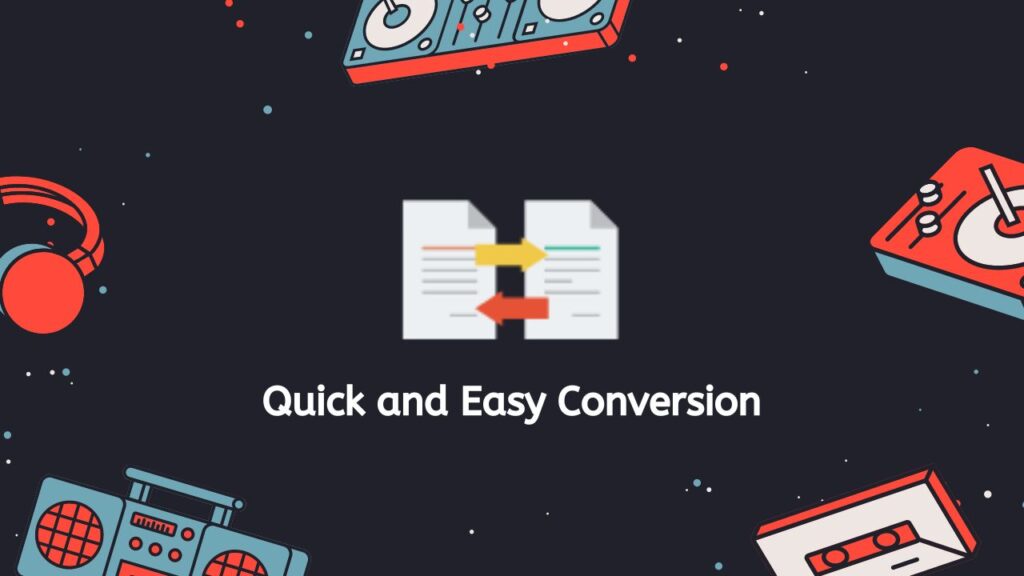
Our app is user-friendly and easy to use. Simply drag the source file into the app and your converted file will be ready within seconds. Our app is fast, reliable, and free to use, and it has top ratings from users.
Our app is also flexible and versatile. It works on any device, from smartphones and computers to tablets. This means that you can convert your MP3 files on the go, whether you are at home, at work, or on the go.
Best of all, our app ensures high-quality file conversion. This means that your converted files will retain the same audio quality as the original MP3 file, ensuring that you can enjoy your music and audio recordings in the best possible quality.
So if you need to convert MP3 files to another audio format, try our free online web converting app today. It’s fast, easy, and free to use, and it will help you to get the most out of your music and audio recordings.
What are some advantages of MP3 files over other audio formats?
MP3 (MPEG-1 Audio Layer 3) is a popular audio format that is widely used for storing and playing digital music. There are several advantages of MP3 files compared to other audio formats:
- Compression: MP3 files use lossy compression, which means that they can be significantly smaller in size compared to other audio formats while still maintaining good audio quality. This makes them convenient for storing and sharing music files.
- Compatibility: MP3 files are widely supported by a variety of devices, including computers, smartphones, and portable media players. This makes it easy to play MP3 files on different devices.
- Ease of use: MP3 files are easy to create and manage, as there are many software tools available for converting audio files to and from the MP3 format.
- Popularity: MP3 is the most popular audio format and has been around for many years. As a result, it has a large user base and is well-established as a standard for digital audio.
That being said, there are also some disadvantages of MP3 files. One of the main drawbacks is that they use lossy compression, which means that some of the original audio data is lost during the compression process. This can result in slightly lower audio quality compared to other audio formats, such as FLAC or WAV, which use lossless compression.
Conclusion
MP3 files are digital audio files that use compression to reduce their file size without significantly affecting their audio quality. They are created using a specific type of audio encoding called MPEG Audio Layer III, which separates the audio signal into small chunks called frames and applies mathematical transformations to them in order to reduce the amount of data required to represent the audio. MP3 files are widely supported by a variety of devices and software programs, making them a popular choice for storing and sharing music and other audio content.
People also asked
Do you have questions? We are here to answer! Below you’ll find answers to the most common asked questions you may have about the MP3 file.
Are MP3 Files Compressed?
Yes, MP3 files are compressed using a technique called “perceptual coding” to reduce their file size without significantly impacting the quality of the audio. This allows them to be easily transmitted and stored on a variety of devices.
Are MP3 files Lossy or Lossless
MP3 files are lossy, which means that they use compression to reduce their file size by removing parts of the audio that are difficult for the human ear to hear. This means that some information is lost during the compression process, resulting in a lower-quality audio file compared to the original recording. However, the reduction in quality is often imperceptible to the human ear and allows for a much smaller file size.
In contrast, lossless audio formats do not remove any information from the original recording, resulting in a higher-quality audio file but a larger file size. Examples of lossless audio formats include FLAC and WAV.
Can an MP3 File Contain a Virus
Yes, it is possible for an MP3 file to contain a virus. Like any other type of file, an MP3 file can be used to deliver a virus to a computer or device. This is typically done by including the virus within the MP3 file itself, or by using the file as a “carrier” to deliver the virus through a network or email attachment.
To protect yourself from viruses in MP3 files, it is important to only download and open MP3 files from trusted sources. Additionally, you should always have up-to-date antivirus software installed on your computer and scan all files, including MP3 files, before opening them.
It is also a good idea to avoid opening MP3 files from unknown sources or that you were not expecting to receive. If you are unsure about the origin or safety of an MP3 file, it is best to delete it and avoid opening it.

